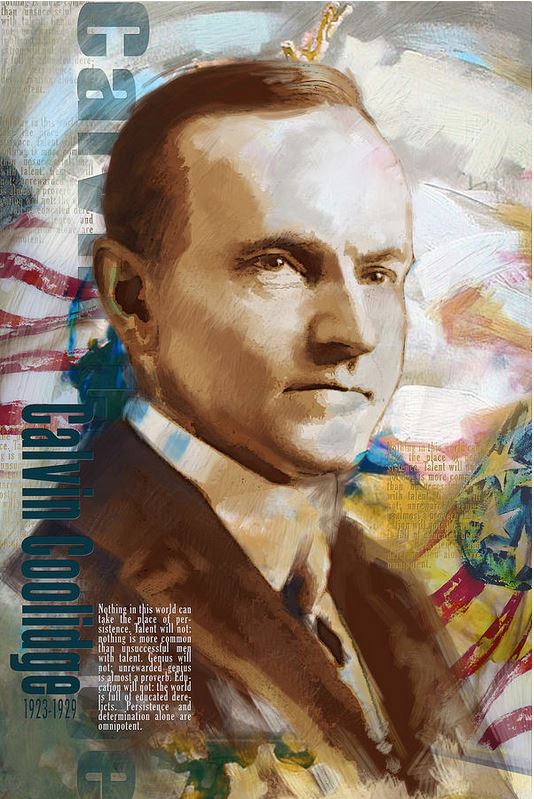
Courtesy of Corporate Art Task Force.
Take a few moments to read this superb piece by Ruth Holleran about the last President to receive a classical education. Calvin Coolidge understood that learning is much more than a scientific process derived through assembly line methods. To Cal, classical education had proven its importance since the early days of America. Of course, it was not classical then, it was simply education as it ought to be. If the substance and power of actual education were to continue, it would have to be shared with each new generation. Nothing less would do.
Education must appeal to the whole person, the individual’s soul and spirit as much as the mind and body. Education must engage all the senses, stir a love for the intangible and poetic, honor the beautiful and the truthful, and nourish with the spiritual.
We are much more than so many cellular organisms with appetites and impulses. Each intellect requires wisdom and virtue to guide and give life true power. We faithfully use that power through a loving service of others. It is a discredit to the truth and disservice to what classical education gives us to keep it to ourselves, quietly concealing it like a candle under a basket.
Our soul’s value comes from the Creator but what we do with the life He gives can either squander that inheritance or affirm His loving sacrifice to save and redeem us.
We see the substance of that genuine education missing in too many places today that have hastily and enthusiastically embraced the “progressive” pragmatism of John Dewey. It has deprived subsequent generations of the rich and dynamic worth of ideals and direction. Approaching education as nothing more than an exercise in technical knowledge and specialized aptitude, moderns have lost sight of the great truths, the eternal essentials, the cultivation of discipline, and the strengthening of faith as the motivating power of the success of the whole person throughout life.
Philosophy and history are treated as less than incidentals. They are entirely uprooted from any meaning, chained as transformed afterthoughts to the central focus in too many classrooms today upon relative morals (which are not morals at all) and a universe of meaninglessness, disorder, and despair. Where we are as a culture and a country is where we have been in education.
Tearing down classical education to enthrone postmodernism first necessitated the removal of memory markers from the “old paths” that flourished before Dewey’s pragmatism. It meant the exile of the real Calvin Coolidge (and all vestiges of similarly heroic and principled people) from history but especially the ideals and objective values by which he lived and served. In its place a narrowly defined success by trivial and material measurements took root. As a result, the untended fields of spirit and soul withered and lay fallow for more than one generation, for both parents and children.
We need the insight Calvin Coolidge possessed and put to use throughout thirty years of public service. Decades of hostility to him stem not only from his remarkable accomplishments but (and, in fact, more than anything else) his superb skill as a communicator. He knew the potency of the spoken and written word. There is nothing more dangerous to the regime of modern education than a witness who understands there are, indeed, no clothes on the Emperor and can say so clearly, completely, and persuasively. The historically-prepared rhetorician is the greatest threat they know.
Like the prophet Jeremiah, who found the truth was a fire kindling in his bones, “Silent Cal” refused to keep quiet about the gift of his education. He encourages us still to restore a love for the truth, a praise for the beautiful, and a life nourished again on the eternal essentials. It means lifting our expectations beyond the junk food of Dewey’s menu to the delicious entrees of classical education. It doesn’t stop there, however. Coolidge answered the call to serve, to do something meaningful for others with that gift. It is a call that comes to each of us fortunate enough to silence the roar of postmodernism. Only then will we hear (once more) the still small voice of God, the living Word, showing us a more excellent way than what we have attempted to travel alone.
Dear Gouverneur
Thank you so much for this post.
One of your best.
Made my eyes moist.
Regards
Andrew Kaschula
Dear Andrew,
It warms my heart to hear this. Thank you!
Best to you, Gouverneur